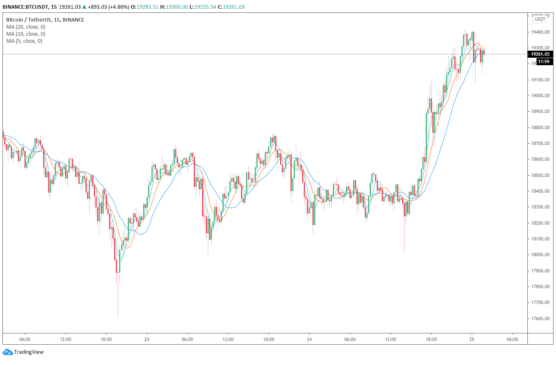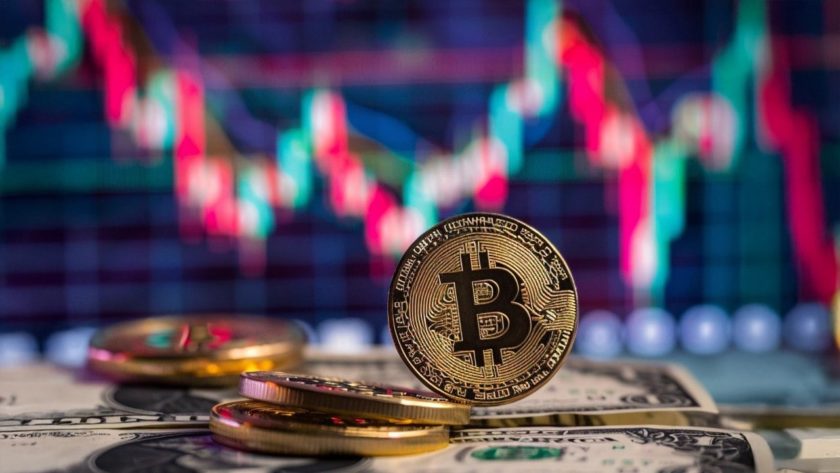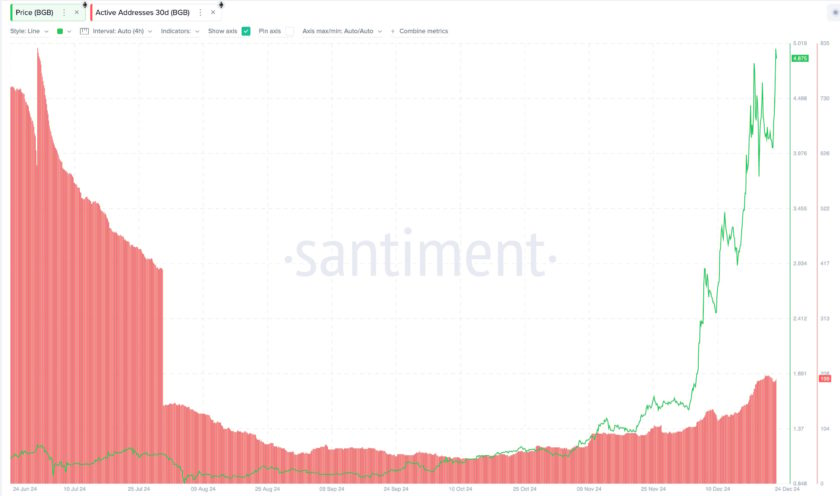The price of Bitcoin (BTC) hit $19,469 on Coinbase, reaching its highest point since the December 2017 peak. Although the dominant cryptocurrency is close to surpassing its record high, there are some warning signs to take note of.
Three potential reasons Bitcoin faces the possibility of a pullback at $20,000 are a bull trap, overhead resistance, and an overcrowded derivatives market.
A potential bull trap scenario
A pseudonymous cryptocurrency trader known as “Bitcoin Jack,” who called the Bitcoin bottom in March 2020, laid out a potential bull trap scenario.
The term bull trap refers to a technical pattern wherein late buyers or long holders get trapped as the price of the asset drops.
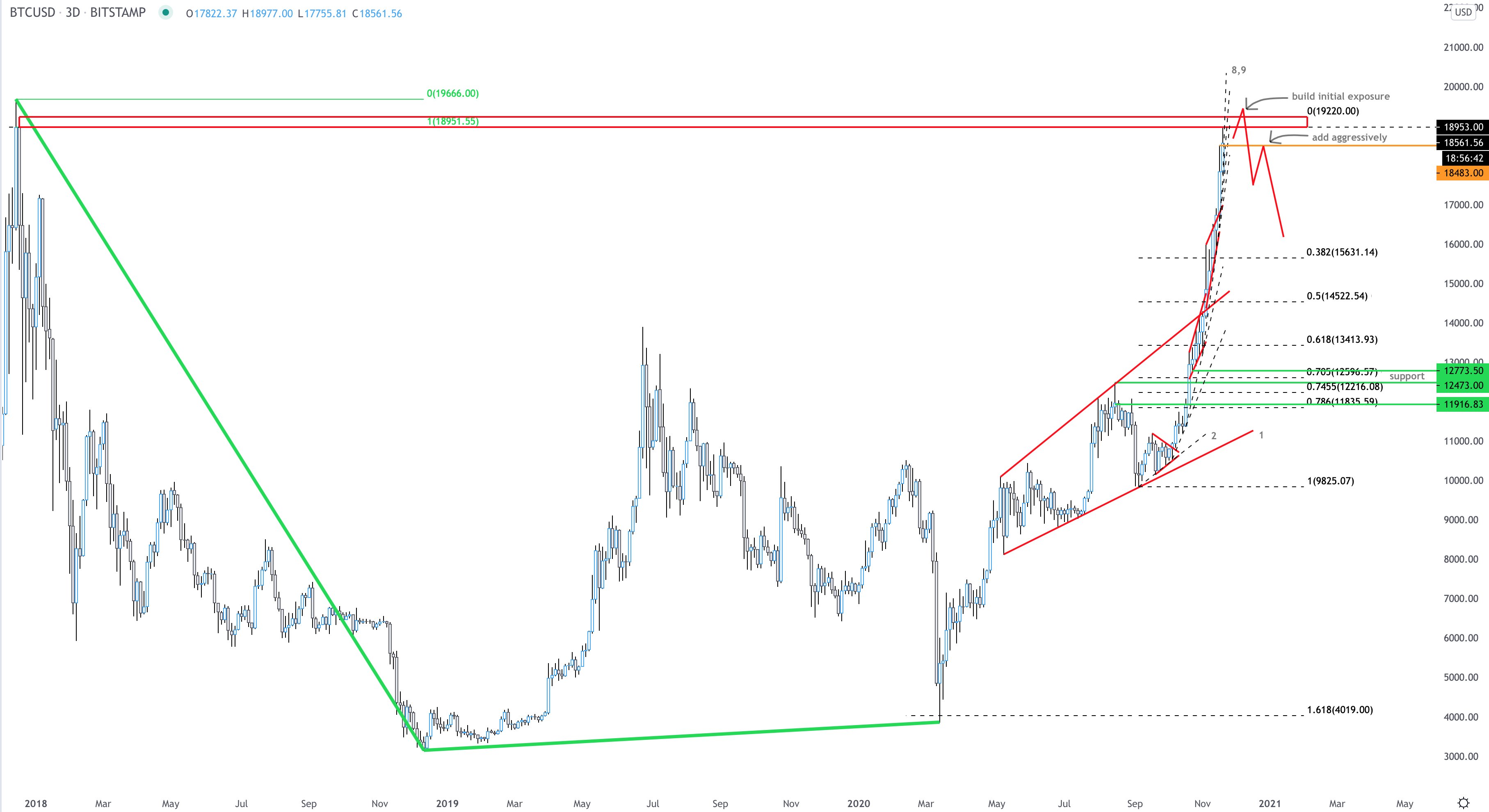
If Bitcoin rejects from the $19,200 to $19,300 area, the trader suggested that a potential pullback is likely. He noted that the $16,000 level would remain a compelling macro support level.
Referring to Bitcoin Jack’s potential price trend projection, a trader known as “NekoZ” emphasized that such a trend is possible. He wrote:
“Seeing dips down to 12k is scary as my levels are consolidation between 16-18k. But yeah very possible, resistances don’t get broken typically on the first try. Which is shown from previous PA along the way up.”
$20,000 is a major resistance level for Bitcoin
If Bitcoin passes $20,000, it would enter price discovery as it searches for a new ceiling. Above $20,000, there is no historical data or evidence to suggest that BTC would top out at a certain price.
BTC could theoretically rise to various targets many industry executives and analysts have shared throughout the past year. Most predictions range anywhere between $25,000 to $100,000 for the ongoing cycle.
Hence, there would be significant interest from sellers to aggressively defend Bitcoin from moving past $20,000.
The funding rate is extremely high
Sellers could find it compelling to add to their positions below $20,000 due to the high funding rates.
Across major cryptocurrency exchanges, the funding rate for the Bitcoin perpetual swap contract ranges from 0.05% to 0.1%. This means that buyers or long contract holders are paying short-sellers a large part of their positions as fees.
Considering that funding rates are highly positive, short-sellers could find it compelling to aggressively short the sub-$20,000 region.
An active OTC market is a variable
Still, on-chain data show that the over-the-counter (OTC) market is active. This typically suggests that whales, high-net-worth investors, and institutions could be purchasing Bitcoin.
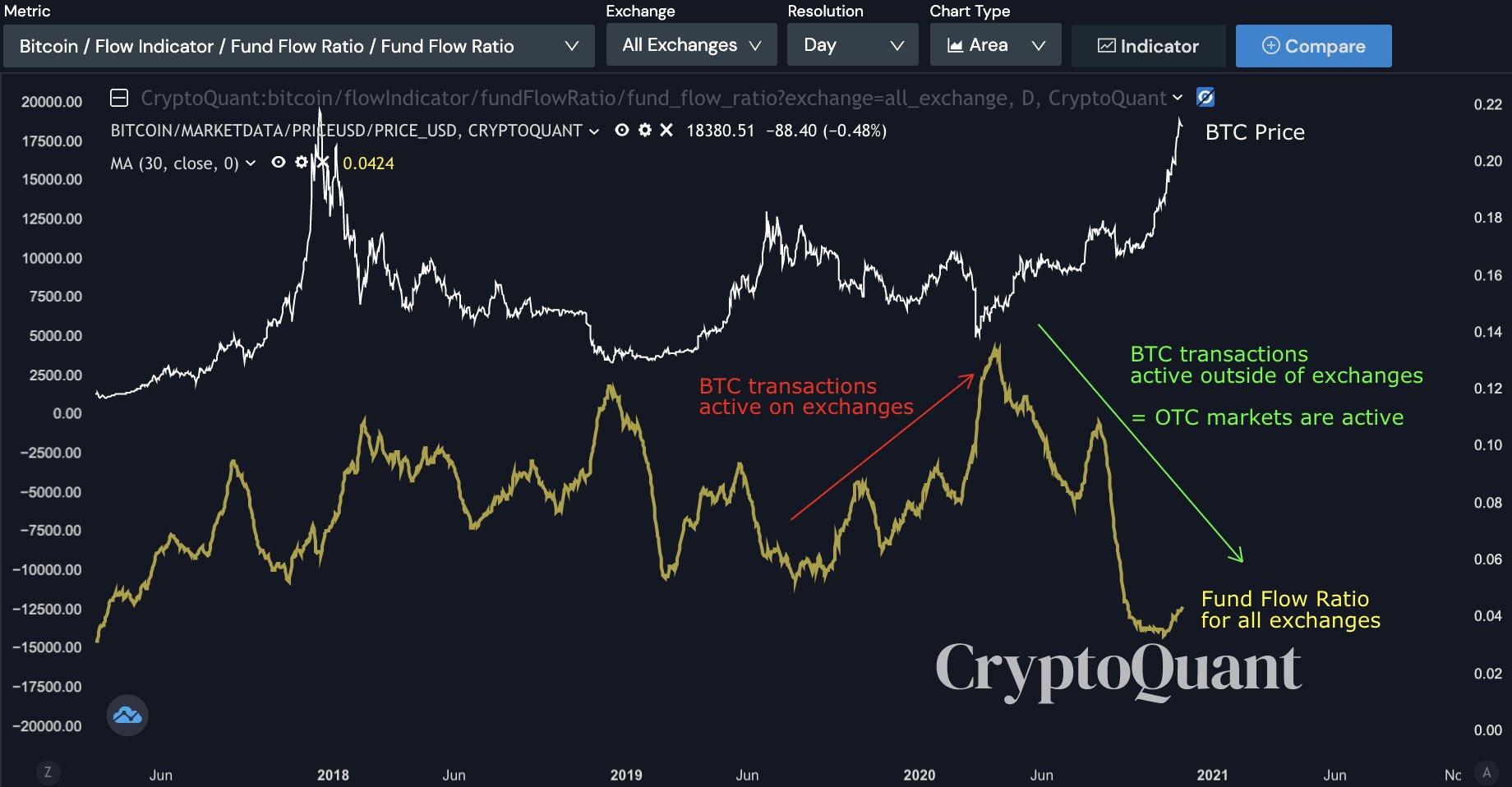
CryptoQuant CEO Ki Young Ju said that while some corrections could occur, $20,000 would likely be overtaken. Ki said:
“OTC markets are still active. $BTC Fund Flow Ratio hit the three-year low a few days ago. Only 3% of transactions are used for exchange deposits/withdrawals on the network. We might have corrections, but I think it would eventually break 20k.”

